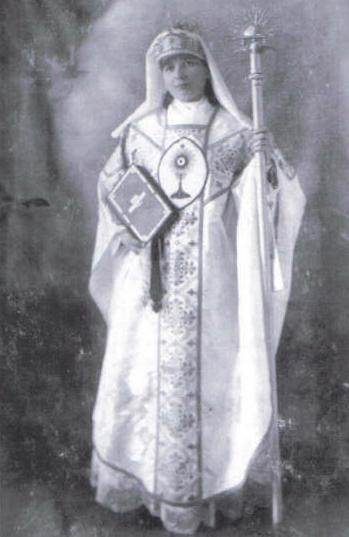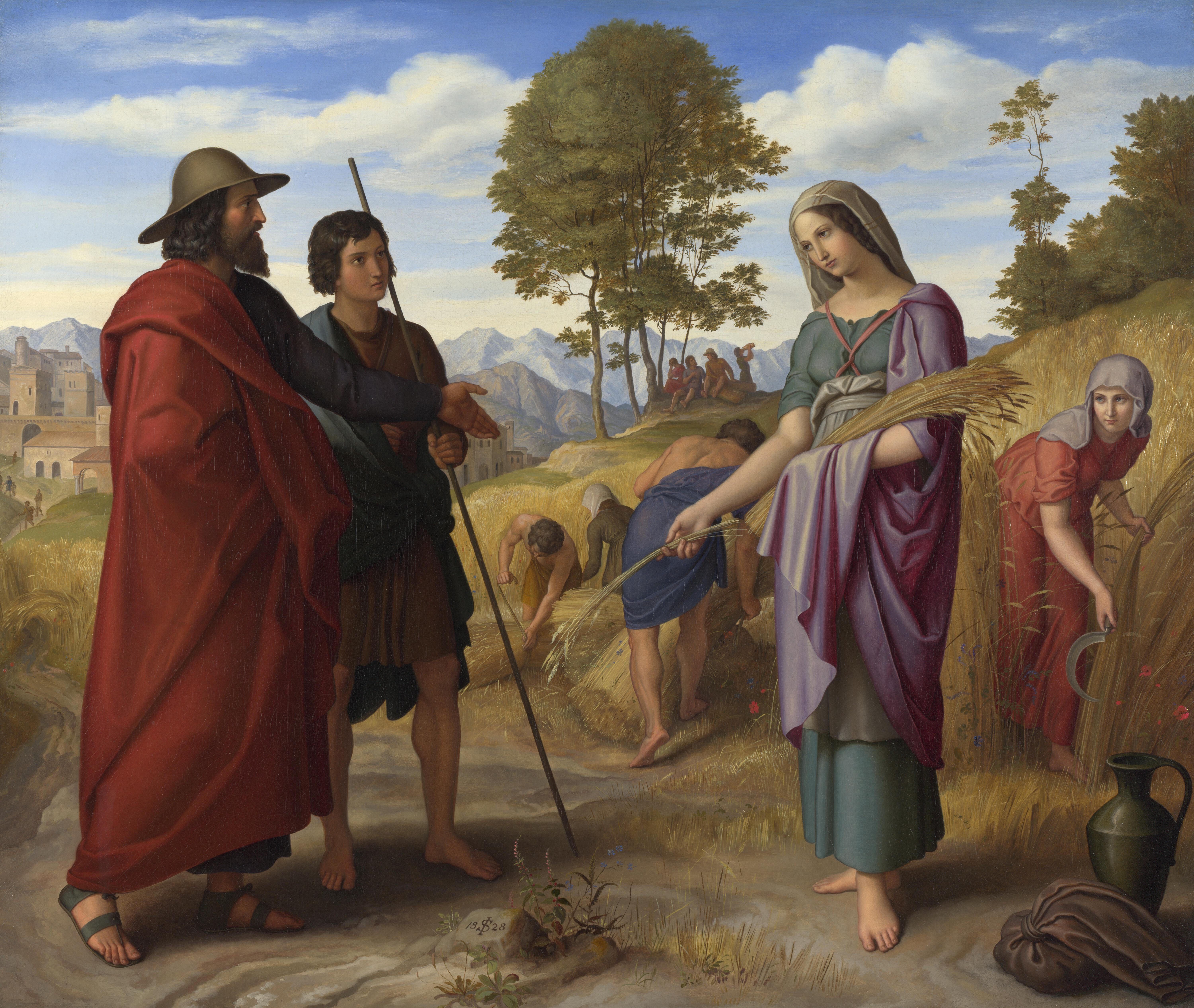|
La Luz Del Mundo
The Iglesia del Dios Vivo, Columna y Apoyo de la Verdad, La Luz del Mundo (; English: "Church of the Living God, Pillar and Ground of the Truth, The Light of the World")or simply La Luz del Mundo (LLDM)is a nontrinitarian Christian denomination with international headquarters in Guadalajara, Jalisco, Mexico. La Luz del Mundo practices a form of restorationist theology centered on three leaders: Aarónborn EusebioJoaquín González (1896–1964), Samuel Joaquín Flores (1937–2014), and Naasón Joaquín García (born 1969), who are regarded as modern-day apostles of Jesus Christ. La Luz del Mundo was founded in 1926 during the Mexican Cristero War, a struggle between the secular, anti-clerical government and Catholic rebels. The conflict centered in the west-central states like Jalisco, where Aarón Joaquín focused his missionary efforts. Given the environment of the time, the Church remained a small missionary endeavor until 1934, when it built its first temple. Thereaft ... [...More Info...] [...Related Items...] OR: [Wikipedia] [Google] [Baidu] |
Spanish Naming Customs
Spanish names are the traditional way of identifying, and the official way of registering, a person in Spain. They comprise a given name (simple or composite) and two surnames (the first surname of each parent). Traditionally, the first surname is the father's first surname, and the second is the mother's. Since 1999, the order of the surnames in a family is decided when registering the first child, but the traditional order is nearly universally chosen (99.53% of the time). The practice is to use one given name and the first surname generally (e.g. " Miguel de Unamuno" for Miguel de Unamuno y Jugo); the complete name is reserved for legal, formal and documentary matters. Both surnames are sometimes systematically used when the first surname is very common (e.g., Federico García Lorca, Pablo Ruiz Picasso or José Luis Rodríguez Zapatero) to get a more distinguishable name. In these cases, it is even common to use only the second surname, as in "Lorca", "Picasso" or "Zapater ... [...More Info...] [...Related Items...] OR: [Wikipedia] [Google] [Baidu] |
Cristero War
The Cristero War ( es, Guerra Cristera), also known as the Cristero Rebellion or es, La Cristiada, label=none, italics=no , was a widespread struggle in central and western Mexico from 1 August 1926 to 21 June 1929 in response to the implementation of secularist and anticlerical articles of the 1917 Constitution. The rebellion was instigated as a response to an executive decree by Mexican President Plutarco Elías Calles to strictly enforce Article 130 of the Constitution, a decision known as Calles Law. Calles sought to eliminate the power of the Catholic Church in Mexico, its affiliated organizations and to suppress popular religiosity. The rural uprising in north-central Mexico was tacitly supported by the Church hierarchy, and was aided by urban Catholic supporters. The Mexican Army received support from the United States. American Ambassador Dwight Morrow brokered negotiations between the Calles government and the Church. The government made some concessions, the Church wit ... [...More Info...] [...Related Items...] OR: [Wikipedia] [Google] [Baidu] |
Sex Crimes
Sex and the law deals with the regulation by law of human sexual activity. Sex laws vary from one place or jurisdiction to another, and have varied over time. Unlawful sexual acts are called sex crimes. Some laws regarding sexual activity are intended to protect one or all participants, while others are intended to proscribe behavior that has been defined as a crime. For example, a law may proscribe unprotected sex if one person knows that they have a sexual disease or to protect a minor; or it may proscribe non- consensual sex. In general, laws may proscribe acts which are considered either sexual abuse or behavior that societies consider to be inappropriate and against the social norms. Sexual abuse is unwanted sexual contact between two or more adults or two or more minors, and, depending on laws with regard to age of consent, sexual contact between an adult and a minor. Definitions Sex crimes are forms of human sexual behavior that are considered sufficiently unacceptab ... [...More Info...] [...Related Items...] OR: [Wikipedia] [Google] [Baidu] |
Los Angeles International Airport
Los Angeles International Airport , commonly referred to as LAX (with each letter pronounced individually), is the primary international airport serving Los Angeles, California and its surrounding metropolitan area. LAX is located in the Westchester neighborhood of Los Angeles, southwest of Downtown Los Angeles, with the commercial and residential areas of Westchester to the north, the city of El Segundo to the south and the city of Inglewood to the east. LAX is the closest airport to the Westside and the South Bay. The airport is operated by Los Angeles World Airports (LAWA), a branch of the Los Angeles city government, that also operates Van Nuys Airport for general aviation. The airport covers of land and has four parallel runways. In 2019, LAX handled 88,068,013 passengers, making it the world's third-busiest and the United States' second-busiest airport following Hartsfield–Jackson Atlanta International Airport. As the largest and busiest international ai ... [...More Info...] [...Related Items...] OR: [Wikipedia] [Google] [Baidu] |
Sexual Abuse
Sexual abuse or sex abuse, also referred to as molestation, is abusive sexual behavior by one person upon another. It is often perpetrated using force or by taking advantage of another. Molestation often refers to an instance of sexual assault against a small child, whereas sexual abuse is a term used for a persistent pattern of sexual assaults. The offender is referred to as a sexual abuser or (often pejoratively) molester. The term also covers behavior by an adult or older adolescent towards a child to stimulate any of the involved sexually. The use of a child, or other individuals younger than the age of consent, for sexual stimulation is referred to as child sexual abuse or statutory rape. Live streaming sexual abuse involves trafficking and coerced sexual acts and or rape in real time on webcam. Victims Spouses Spousal sexual abuse is a form of domestic violence. When the abuse involves threats of unwanted sexual contact or forced sex by a woman's husband or e ... [...More Info...] [...Related Items...] OR: [Wikipedia] [Google] [Baidu] |
Public Relations
Public relations (PR) is the practice of managing and disseminating information from an individual or an organization (such as a business, government agency, or a nonprofit organization) to the public in order to influence their perception. Public relations and publicity differ in that PR is controlled internally, whereas publicity is not controlled and contributed by external parties. Public relations may include an organization or individual gaining exposure to their audiences using topics of public interest and news items that do not require direct payment. The exposure mostly is media-based. This differentiates it from advertising as a form of marketing communications. Public relations aims to create or obtain coverage for clients for free, also known as earned media, rather than paying for marketing or advertising also known as paid media. But in the early 21st century, advertising is also a part of broader PR activities. An example of good public relations would be g ... [...More Info...] [...Related Items...] OR: [Wikipedia] [Google] [Baidu] |
Ecclesiastical Polity
Ecclesiastical polity is the operational and governance structure of a church or of a Christian denomination. It also denotes the ministerial structure of a church and the authority relationships between churches. Polity relates closely to ecclesiology, the study of doctrine and theology relating to church organization. ''Ecclesiastical polity'' is defined as both the subject of ecclesiastical government in the abstract and the particular system of government of a specific Christian organization. The phrase is sometimes used in civil law. History Questions of ecclesiastical government are first documented in the first chapters of the ''Acts of the Apostles'' and "theological debate about the nature, location, and exercise of authority, in the church" has been ongoing ever since. The first act recorded after the Ascension of Jesus Christ was the election of Saint Matthias as one of the Twelve Apostles, to replace Judas Iscariot. The Twelve Apostles were the first to i ... [...More Info...] [...Related Items...] OR: [Wikipedia] [Google] [Baidu] |
Ordination Of Women
The ordination of women to ministerial or priestly office is an increasingly common practice among some contemporary major religious groups. It remains a controversial issue in certain Christian traditions and most denominations in which "ordination" (the process by which a person is understood to be consecrated and set apart by God for the administration of various religious rites) was often a traditionally male dominated profession (except within the diaconate and early heretical movement known as Montanism). In some cases, women have been permitted to be ordained, but not to hold higher positions, such as (until July 2014) that of bishop in the Church of England. Where laws prohibit Anti-discrimination law, sex discrimination in employment, exceptions are often made for clergy (for example, in the United States) on grounds of Separation of church and state in the United States, separation of church and state. The following aims to provide a comprehensive overview of the o ... [...More Info...] [...Related Items...] OR: [Wikipedia] [Google] [Baidu] |
Christian Headcovering
Christian head covering, also known as Christian veiling, is the traditional practice of women covering their head in a variety of Christian denominations. Some Christian women, based on historic Oriental Orthodox, Eastern Orthodox, Catholic, Lutheran, Moravian, Reformed, Anglican, Methodist, Baptist and Plymouth Brethren teaching, wear the head covering in public worship and during private prayer at home (though some women belonging to these traditions may also choose to wear the head covering outside of prayer and worship), while others, especially traditional Anabaptist Christians, believe women should wear head coverings at all times, based on Saint Paul's dictum that Christians are to "pray without ceasing" and Saint Paul's teaching that women being unveiled is dishonourable. Genesis 24:65 records the veil as a feminine emblem of modesty. Manuals of early Christianity, including the Didascalia Apostolorum and Pædagogus instructed that a headcovering must be worn by wom ... [...More Info...] [...Related Items...] OR: [Wikipedia] [Google] [Baidu] |
Religious Images In Christian Theology
Religion is usually defined as a social-cultural system of designated behaviors and practices, morals, beliefs, worldviews, texts, sanctified places, prophecies, ethics, or organizations, that generally relates humanity to supernatural, transcendental, and spiritual elements; however, there is no scholarly consensus over what precisely constitutes a religion. Different religions may or may not contain various elements ranging from the divine, sacred things, faith,Tillich, P. (1957) ''Dynamics of faith''. Harper Perennial; (p. 1). a supernatural being or supernatural beings or "some sort of ultimacy and transcendence that will provide norms and power for the rest of life". Religious practices may include rituals, sermons, commemoration or veneration (of deities or saints), sacrifices, festivals, feasts, trances, initiations, funerary services, matrimonial services, meditation, prayer, music, art, dance, public service, or other aspects of human culture. Religions have ... [...More Info...] [...Related Items...] OR: [Wikipedia] [Google] [Baidu] |
Early Christianity
Early Christianity (up to the First Council of Nicaea in 325) spread from the Levant, across the Roman Empire, and beyond. Originally, this progression was closely connected to already established Jewish centers in the Holy Land and the Jewish diaspora. The first followers of Christianity were Jews or proselytes, commonly referred to as Jewish Christians and God-fearers. The Apostolic sees claim to have been founded by one or more of the apostles of Jesus, who are said to have dispersed from Jerusalem sometime after the crucifixion of Jesus, c. 26–36, perhaps following the Great Commission. Early Christians gathered in small private homes, known as house churches, but a city's whole Christian community would also be called a church – the Greek noun ἐκκλησία (''ekklesia'') literally means assembly, gathering, or congregation but is translated as church in most English translations of the New Testament. Many early Christians were merchants and othe ... [...More Info...] [...Related Items...] OR: [Wikipedia] [Google] [Baidu] |







